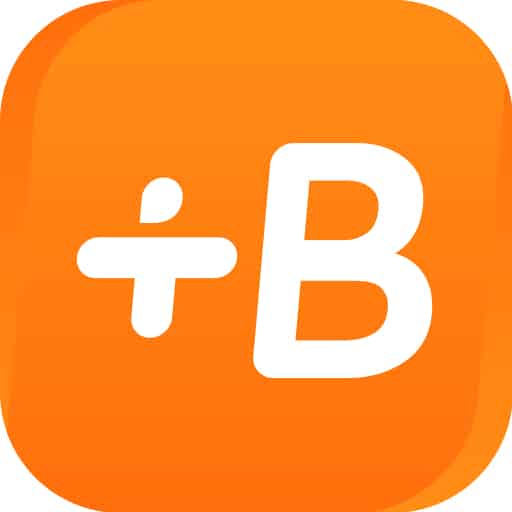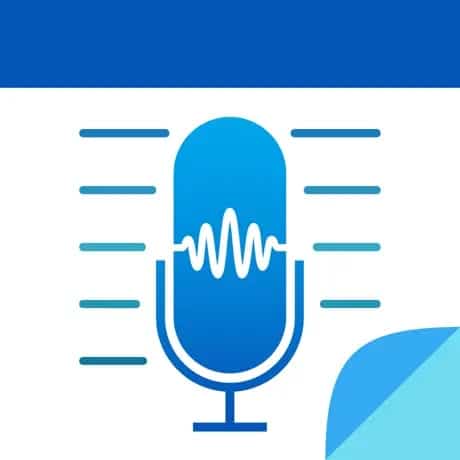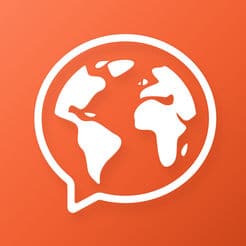
How to Learn Languages with Speech Recognition Tools
I’ve got all the right books and tons of vocabulary flashcards… but I can’t find anyone to actually speak with!
Luckily, technology provides a solution.
Thanks to increasingly advanced speech recognition, there are apps that can give you instant feedback on your speaking and pronunciation skills.
Let’s dive into how exactly speech recognition can help with language learning, along with the seven best apps for this!
Contents
Download: This blog post is available as a convenient and portable PDF that you can take anywhere. Click here to get a copy. (Download)
Why Use Speech Recognition for Language Learning?
Improve Pronunciation
First of all, using speech recognition can help you fine-tune your pronunciation. One of the trickiest aspects of learning to speak a language is getting your pronunciation right, especially if you’re mostly learning on your own. Even native speakers can sometimes have a hard time pinpointing which part of your pronunciation needs correcting.
With speech recognition, you can practice speaking using your phone and know right away what you need to improve. Some apps even check your intonation and break down which syllables you pronounced wrong.
Less Intimidating
Additionally, speech recognition isn’t intimidating. One thing that holds back many learners from practicing their speaking skills more is being afraid to make mistakes with native speakers.
Since you aren’t working with an actual person, you won’t be embarrassed if you make a mistake with speech recognition. Practicing with an app can make you more confident in your skills and eventually take away some of the intimidation factor of talking with actual native speakers.
Personalized Learning
Speech recognition gives you specific feedback about your accent and speaking skills. As technology gets more advanced, many apps with speech recognition can give very detailed reports about your language skills and plan your next lessons based on these.
You can even practice two-way dialogues now, with some AI apps coming up with their own responses and setting up different scenarios.
Flexible Studying
Finally, speech recognition apps provide a flexible study option. You can get speaking practice whenever you want, without needing to schedule time with a conversation partner.
That means you can cram in a little extra speech practice whether you’re waiting in line at the store, relaxing in bed or even in the shower (just make sure your phone is waterproof first).
Speech Recognition Apps for Language Learning
1. Mondly
Need some conversation practice? Mondly might be the supportive, non-judgmental conversation partner you’re looking for.
Mondly’s main focus is on helping you learn common words and phrases that you can use in real-world situations you’re likely to encounter.
After helping you remember key words and start putting together phrases, Mondly will put your speaking skills to the test with a simulated conversation. You’ll hear a prompt spoken by a native speaker. The words and their translations will also appear on the screen. From there, you’ll have a list of options for replies you can actually say into your device.
Mondly’s speech recognition aims to improve your pronunciation by listening to your words and phrases and giving you feedback for correct, clear speaking.
Mondly offers more than 40 languages, including common options like Arabic, Chinese, French, German, Italian, Japanese, Korean, Portuguese, Russian and Spanish. However, Mondly also offers less common options, like Afrikaans, Bulgarian, Croatian, Hungarian, Indonesian, Persian and more.
Click here for an in-depth review on Mondly.
2. FluentU
Immersive learning (surrounding yourself with the real spoken and written language) is the key to FluentU’s language learning program. In fact, it is best used for at-home immersion to round out the speaking skills.
FluentU uses authentic video clips to bring the language you’re learning right to your computer or phone screen. Each video comes with interactive captions—click any word for an instant definition, native pronunciation and visual learning aid. This allows you to learn vocabulary in context, so you can be better prepared to understand and participate in native-level speech.
Since all the videos are organized by genre and learning level, you can easily find the content that suits your needs. You can then test your knowledge of the material with personalized quizzes. These quizzes can be completed through written input as well as speech recognition input, so you can master your accent in tandem with building your vocabulary.
3. Babbel

Babbel aims to teach you a language in 10- to 15-minute daily lessons. It covers popular topics, like business, travel, shopping, dining and transportation, to ensure that the skills you learn are likely to be usable in the real world.
Babbel’s speech recognition feature appears during vocabulary review. You’ll see the written word and its English meaning and you can also play an audio pronunciation. From there, you have the option of speaking the word yourself. Your goal is to emulate the pronunciation you heard.
If your pronunciation is good, you’ll get a new word. If not, you have four more chances before the app moves on regardless of your pronunciation.
Babbel offers 14 languages, including Spanish, French, German, Russian, Italian and English.
You can find out more about Babbel with this detailed review.
4. AudioNote

While AudioNote isn’t designed for language learners, it could be your secret weapon for perfecting your pronunciation.
AudioNote’s main focus is (you guessed it) taking audio notes. This means that you speak into your device while the app jots down what you said.
For language learners, this provides a quick way to see if your pronunciation is clear enough for the app to understand what you’re saying. If the transcription isn’t accurate, you may not be speaking clearly enough.
One of the features that’s perhaps most useful for language learners is the linking of audio and text. You can play back the audio you spoke as the app highlights the transcription to show where you’re at. This makes it easy to pinpoint which (if any) words you mispronounced. You can also tap your notes if you want to hear specific words you said.
AudioNote is available in English, French, German, Italian and Spanish.
5. Busuu

Got an extra 10 minutes today? Busuu can help fill it with language learning goodness.
Not only will Busuu provide you with grammar lessons, vocabulary practice and conversations with native speakers, but it can also help you improve your accent with speech recognition exercises.
In these exercises, you hear a native speaker and repeat after him/her. Then, the app will tell you if you pronounced the prompts correctly.
Levels range from beginner to fluent. Busuu offers 14 languages, including Arabic, Chinese, English, French, German, Italian, Japanese, Polish, Portuguese, Russian, Spanish and Turkish.
For more on Busuu, check out this review.
6. Rocket Languages
Sure, Rocket Languages offers plenty of interactive materials to help you learn a language. Sure, it’s designed to be flexible so you can learn at your pace in whatever time you have available. But let’s get to the juicy stuff: the speech recognition activities.
Rocket Languages offers speech recognition for thousands of phrases. You’ll be presented with a written word or phrase and its English translation. For languages that don’t use the Latin alphabet, there’ll also be a transliteration listed to make things a little easier for you.
Then, you can speak that word or phrase and the app will give you feedback on your pronunciation.
Rocket Languages offers 14 foreign languages, including Spanish, Portuguese, French, Italian, German, Chinese, Korean, Russian, Arabic and Japanese.
Click here for a full review of Rocket Languages.
7. Rosetta Stone
If you’re into language apps and/or software, chances are you’ve heard of Rosetta Stone. Probably a lot. But don’t stop reading just yet!
Rosetta Stone has a lot to offer for language learners, so it should come as no surprise that their app offers some top-notch speech recognition. In fact, their speech recognition comes complete with its own registered trademark name: “TruAccent™.”
It aims to help you perfect your accent by practicing common words and phrases and reading short stories aloud.
This technology not only checks to make sure the words and phrases you used are correct, but it also compares your speech to that of a native speaker to provide you with an instant assessment of which words you pronounced well and which could use some more work.
You can even compare the wavelengths of your audio to that of the native speaker, for super-precise adjustments. Plus, Rosetta Stone will track your progress and let you see how your pronunciation has improved over time.
Rosetta Stone offers over 20 languages, including Chinese, Japanese, Korean, Portuguese, Arabic, Spanish, Italian, French and German.
Here’s an in-depth review of Rosetta Stone.
So speak up with these seven apps with speech recognition!
Download: This blog post is available as a convenient and portable PDF that you can take anywhere. Click here to get a copy. (Download)






